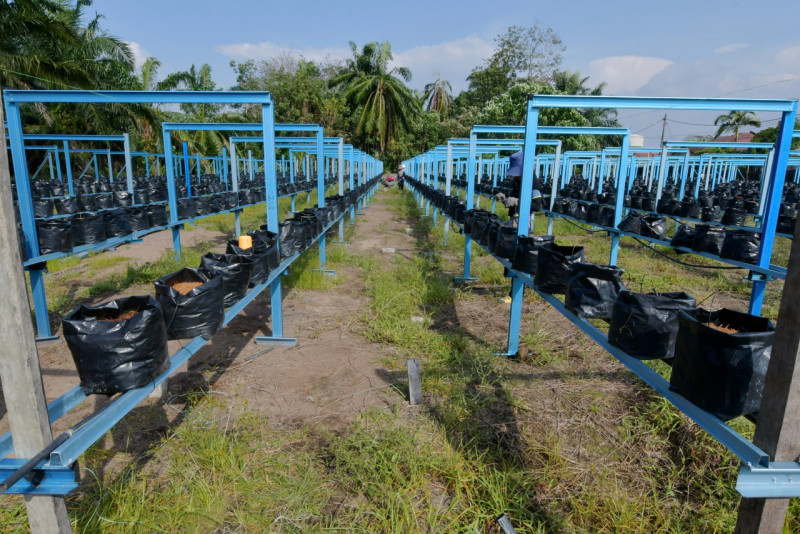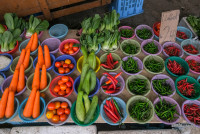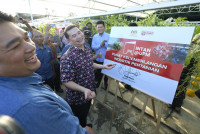RECENTLY, several business groups and certain parties from the International Trade and Industry Ministry have been actively lobbying the government for Malaysia to ratify the Comprehensive and Progressive Agreement for Trans-Pacific Partnership (CPTPP).
The CPTPP was signed by 11 countries, namely Australia, Brunei, Canada, Chile, Japan, Malaysia, Mexico, Peru, New Zealand, Singapore, and Vietnam on March 8, 2018. The CPTPP will only come into force when the countries concerned ratify the laws of their respective countries, each in line with the text of the agreement.
Malaysia is still in the process of evaluating the impact and benefits of the CPTPP, and has not set a specific date for its ratification. The ratification decision will be made by the cabinet.
Although referred to as a “trade” agreement, only six of the 30 chapters in the text of the agreement are on conventional trade in goods, while the other 24 chapters contain rules and requirements in non-trade matters involving intellectual property, investment, government procurement, state-owned companies, e-commerce, services, environment, and labour.
This agreement will deeply affect the socioeconomic and sociocultural fabric of Malaysia and there are provisions that will restrict, even prevent, Malaysia from introducing good new policies if they conflict with the CPTPP.
In the context of agriculture, livestock and fisheries, the risk is quite large as Malaysia is not a major exporter of agro-food but of a commodity crop, namely palm oil. We need to learn from the North American Free Trade Agreement, which saw the Mexican agricultural industry nearly destroyed due to the dumping of agricultural produce coming in from the United States and Canada, as well as rising agricultural input costs due to monopolies created by stricter intellectual property protection.
Cost increase
The intellectual property chapter in the CPTPP text obliges the country to join several international agreements on intellectual property. Among the agreements that will have a direct impact on farmers are the International Convention for the Protection of New Varieties of Plants (commonly known as UPOV91) and the Budapest Agreement related to patents on microorganisms.
UPOV91 is an agreement that creates monopoly rights of companies and breeders over seeds and plant propagation material. Most members of UPOV91 are developed countries that have many commercial breeders able to meet the strict requirements of UPOV91 designed for monoculture varieties such as the test for distinctness, uniformity, and stability.
In Malaysia, we already have the Protection of New Plant Varieties Act 2004 (PVP2004) which suits the agricultural situation in this country. PVP2004 balances the rights of commercial breeders over their innovation efforts, while not preventing small farmers from adopting traditional practices of saving, sharing and selling seeds.
PVP2004 also protects the country from the risks of biopiracy and biosecurity, implements royalty controls, and guarantees farmers that they will have an adequate supply of seeds at affordable prices. Participation in the UPOV91 system will require the government to dissolve the PVP2004 and effectively prevent farmers from storing and sharing protected seeds, forming a market monopoly for 20 for a particular seed (25 years for vines and trees), and ultimately increasing seed prices.
The Budapest Treaty allows a party applying for a patent on a microorganism to not have to keep samples of the biological material in all countries where he or she wishes to obtain a patent. Applicants only need to keep the biological material in any recognised institution under the Budapest Treaty, and this deposit will be recognised in all countries that are members of the treaty.
In this regard, the Budapest Treaty makes it procedurally easier to obtain patents on microorganisms such as effective microorganisms that are widely used in organic farming, the production of biofertilisers from animal manure, and the processing of food products. These patents on microorganisms will allow the company concerned to have a monopoly in the market.
The CPTPP agreement will also force farmers to incur higher costs for agricultural chemicals because the intellectual property chapter provides for market exclusivity rights for 10 years to original producers of agricultural chemicals even if they are not patented, as the government cannot approve the manufacture, import or sale of the generic chemicals for a period of 10 years if a certificate of market exclusivity is given.
Although the use of organic methods in agriculture is better, we can’t deny that farmers in Malaysia are currently heavily dependent on agricultural chemicals. A farmer in Kedah spends around RM300-RM400 per hectare for chemical pesticides while a commercial chilli grower spends around RM4000 per hectare for agricultural chemicals. These costs will increase if the CPTPP is ratified.
Moreover, stronger intellectual property protection in the CPTPP text will allow more veterinary drugs to be patented and sold at higher monopoly prices for a longer period of time, all of which will increase costs, and reduce breeders’ incomes.
Abolition of subsidies
Although the CPTPP does not oblige member states to abolish all domestic subsidies in the agricultural industry, it does oblige the abolition of all forms of export subsidies for agricultural products. This means that government assistance programs for farmers to export agricultural products to CPTPP member countries will not be possible.
In the environmental chapter, the CPTPP text prohibits subsidies from being given to the catch of certain fish species. Although this ban is intended to protect the declining numbers of certain fish species due to overfishing, it should be understood that the cause of the shortage of fish numbers is due to large and foreign fishing boats using fishing gear that catch small fish and destroy fish habitats such as trawls, rawa sorong, bubu naga, and fish bombs. This ban is not practical and even unfair to coastal fishermen.
Local markets affected
The development of the agricultural sector should not only focus on the quantity of agricultural produce but must also guarantee high incomes to farmers, local breeders, and fishermen.
However, if Malaysia ratifies the CPTPP, we are required to remove 100% of tariffs on imported goods including agricultural products (with some transition periods and tariff-rate quotas for poultry and eggs). Thus, Malaysia will face an increase in imports of agricultural products from other CPTPP countries. Import tariffs are one form of protection for local farmers, breeders and fishermen besides being a source of national income.
In addition to tariffs, non-tariff import controls such as quotas and permits would also need to be eliminated to facilitate the entry of products from other CPTPP member countries. Without tariffs and import controls, Malaysian farmers, breeders and fishermen will most likely not be able to compete with cheaper imports of agricultural products and food from other CPTPP countries, especially Vietnam and Australia which also provide domestic subsidies to their farmers, breeders and fishermen.
As a result, our people are losing income and there will be a reduction in Malaysian food production. When Malaysia depends on food imports, the country's food security will be threatened as we have seen in the Covid-19 pandemic when some countries restricted food exports. Malaysia is already a major food importer.
Alternatives to CPTPP
The CPTPP is not an agreement on trade, but an agreement that encroaches on a country’s responsibility to protect the socioeconomic well-being of its people. There are many specific policies that can be formulated by the government to trade with other countries in the world that are fair and can benefit Malaysia and especially its small producers.
Tariffs, quotas, export subsidies, regulations, and incentives should be constantly reviewed and adjusted according to regional and global economic developments in order to benefit the people. The 12th Malaysia Plan and the 2nd National Agro-Food Policy for example can be independently formulated according to our own mould without the need for us to tie our feet and hands to foreign economic and geopolitical powers. – The Vibes, September 3, 2021
Nurfitri Amir Muhammad (Fitri Amir) is a researcher, social activist, and also the coordinator of the Malaysian Food Security and Sovereignty Forum




















